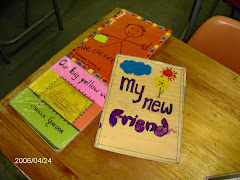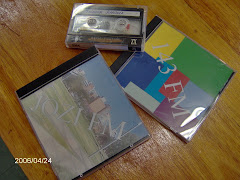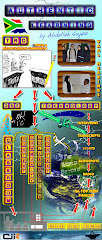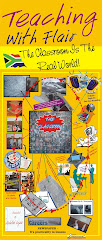Teaching into the future! Are you ready?
Imagine this scenario:
The year is 2009 exactly where we are now and through some planning Allah allows two professionals from 1808 to visit the world in their respective professional fields. The one is a doctor and the other a teacher. The doctor walks around and finds the clinic and begins to see if he can help when a patient is wheeled into theatre with severe pains in the chest. Immediately he is at a loss when he sees the huge operating theatre, the lights, the cameras, the heart rate monitors and everything else. Frightened and confused he looks for a way out. He walks out like a thief from a dark house because he feels like a fish out of water. He presses his time button and immediately he goes back to where he came from.
Then the teacher comes on the scene. The teacher walks around and he looks for the first school, madressah, vernacular class, lecture hall and he finds one school. Ahha! He looks inside and he sees the blackboard now green in colour, he sees the chalk, the pupils behind the desk, the ruler and pens etc. He walks in and takes over the lesson and feels so much at home. The 21st century teacher who sees all this and says to 18th century man: “Excuse me, but who do you think you are, coming into my class and taking over my math lesson?” He turns around and says, “Good morning dear madam, I am from the past, perhaps you should go there – we do things very much the same.” Saying that, he gives her his time button, makes her press it, and sends her back to the future!
Get it, the future of education in the 18th century meant a great development from what they already knew and practiced then therefore, we need to see how well we have progressed from then to now – 2009. But, take a critical look at how we teach today – in general sense we have not moved the centre. Believe it or not! You have been doing what you always do in the classroom for the past decade or decades and, some of us have become so outmoded in our practice of teaching that we sound like old records even though ipods are the in thing.
The emerging society then understood education for mainstream to be applicable for children who were just normal. Then people began to become sensitive to children who were born with disabilities, had learning disorders and were not ‘normal’ in their understanding of human development. In effect, studies began at a slow rate but it quadrupled as the years passed because educationists did not want a society where people with special needs are marginalised and sidelined. Together with this study, the technological boom affected everything.
The point made is that in this technological age the reasons to learn how to read, write and speak is still greatly important and therefore, we need to use technology to our advantage in dealing with children with special needs. This means then we need to train our people for the age they are living in. Our teachers of these special children need to embrace change with fortitude, zeal and optimism because we need prepare these children to live in the world without feeling that they are dependent on others for the rest of their lives.
Dependency can be a curse! For too long we as a Muslim community in South Africa have shied away from the situation of children with special needs and that is why, today we do not have established institutions that shows a formidable research base and practice with such children. Therefore, we need to work very hard to take pride in establishing ourselves to be leaders in the field of teaching children with special needs. In doing so, we need to embrace the full ambit of technology in this case as well. This means that we do not make a further distinction between the Revealed Sciences (Quran & Hadith) and the Applied Sciences (Maths, Science etc) and technology. We need to weld all of this together and develop ourselves to teach children with special needs in a very dynamic and practical way.
The dynamic practice is what we lack because we have of very recent taken on the tremendous challenge of establishing a school for special needs that has an Islamic ethos and foundation. Very much like the Muslim schools phenomenon, it is still recent in terms of how others have progressed with their educational endeavours on a global scale. In effect, we need realise that we will have great challenges ahead that will require more of our health, wealth and time. We need to therefore, look at how we can make ourselves independent of funding from charitable institutions to fund our schools, especially for schools for special needs children because, charity freezes peoples’ innovation, will and creative abilities.
Talking about freezing peoples’ creative abilities, children with special needs cannot be frozen because of illiteracy because very able people failed them. If this happens, then we have shamed ourselves as human beings. The special needs school that has just been established is a fledgling and therefore, it has to be nurtured with the right attitude and professional development.
The professional development we need is one that seeks to have the best person for the job and most refined in character. In having such a person for the job, the school will promote the right attitude to the public i.e. these special needs children deserve the best and like all other children, they deserve an equal opportunity in life. The fact that life is opportunity based in the realm of trials and tribulations, we need to ensure that the teacher who takes on the responsibility to teach these special children has the attitude that will be positive and realistic in the achievements of the children. While it is true that people rise only to extra-ordinary expectations, special needs children have every moment as an extra-ordinary expectation. What this means is that children with special needs are people who want to be independent like all of us but, their independence rests on how we view them. There are just so many examples of how people with disabilities achieved great things and are living normal lives because society allowed them opportunity without prejudice.
A prejudiced society is not progressive and the one prejudice we all have in varying degrees is that of people with disabilities. We need to identify with our own self worth and begin to address our prejudiced views on this matter so that when we educate them, we feel that we are educating a great human and not a ‘second hand’ human. In all of this what do we see as the core? It is education and attitude. Formal education in itself will not solve the issues, because it not the panacea but, it is a key to many doors. With the right attitude, children will become more streetwise with the education they receive when their formal learning becomes a real tool for them to cope with life and its challenges. In the end know that teaching is also a subversive activity, to take a cue from Niel Postman and therefore, we don’t always teach the right things to the right people. In effect, we need to be more circumspect and prudent when we teach special needs children.
Back to the future would mean then that we shape our minds to deal with all challenges and rise to the occasion because in the end, the true measure of a teacher is the pupil and the true measure of a society is how independent the ‘weak’ are.
Sunday, October 11, 2009
Subscribe to:
Comments (Atom)






